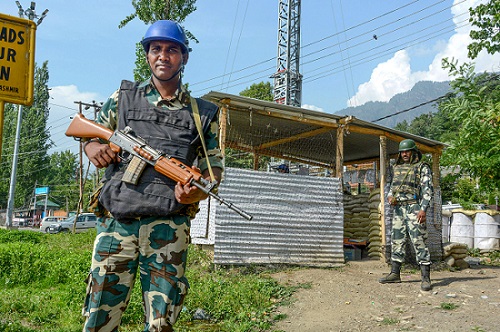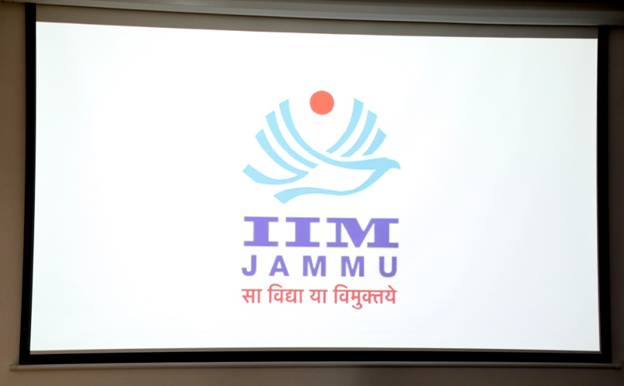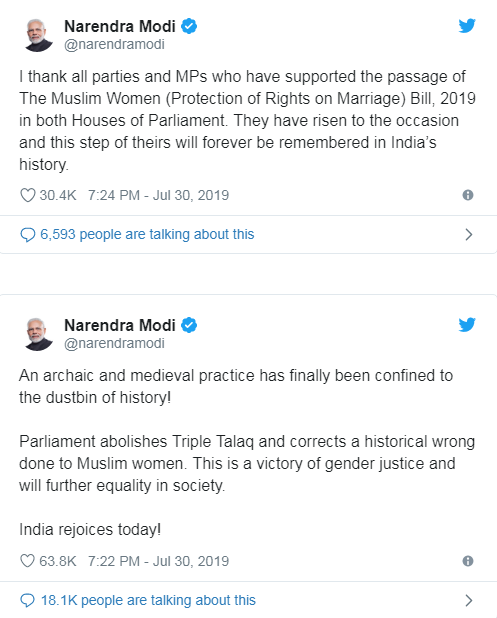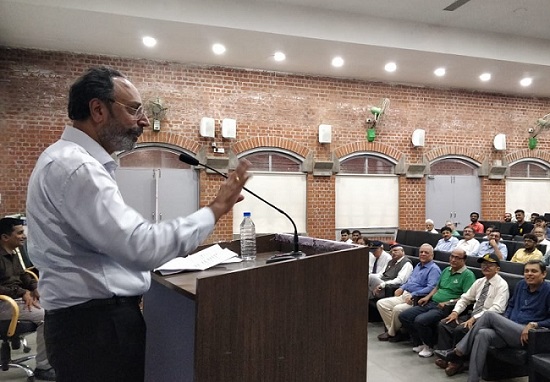More than 100 retired defence officers have strongly condemned and criticized the Open Letter written to the PM recently by a group of 49 people from diverse creative fields. Given below is the statement issued by these veterans.
An open letter to our Prime Minister Narendra Modi has been written by some self-styled custodians of democracy and freedom of speech, led by the likes of Aparna Sen and others. The letter has been published on July 23, 2019. It was signed by some 49 so called celebrities.
The letter has deeply hurt our sentiments, the sentiments of the veteran soldiers. The letter is one sided and quotes only selective incidents. The tone and tenor of the letter seems to please our enemies, rather than an effort to solve our problems.
We are hurt that their diatribe did not even spare “Shree Ram”. “Shree Ram” has been the soul and spirit of this country for millennia. We have survived the invaders for more than a thousand years only through our patience and faith in “Shree Ram”. We the soldiers fight for our country and uphold all faiths and religions. But when someone tries to demean the majority faith, we really feel hurt. It becomes difficult for the Military leadership to keep the morale high among the soldiers. The soldier whose religion is attacked, feels demoralised.
We felt for long that there are black sheep among us, the enemy within. But now we know them. It was strange and shameful that within a day or so when our country was celebrating the great feat of Chandrayaan-2 that these people rolled out this letter. They have tried to demean and belittle India in the eyes of the world.
We were told for long that Indian cinema is in the grip of some absconding criminals and enemies of Hindu faith. Their letter gives credence to such claims for these film personalities at least. These people are either anti-Hindu & anti-national or they are on the payroll of some criminal syndicates. Their only agenda is to keep India under cloud and look for opportunities to damage its growing image.
Indian soldier, everyone knows, has always stood the tests of time to protect our territorial integrity and sovereignty under every adversity despite lukewarm to contemptible treatments by most of the earlier regimes, till Modi arrived. Everything changed as Modi arrived on the scene. There has been a sense of comfort, a breath of fresh air. The corruption has been stifled, the military procurement has been expedited and a big boost has been provided to our own Military-Industrial Complex.
May be these people are not happy that PM Modi has stopped their loot, checked their anti-India activities and that the morale of our soldiers is very high.
We the soldiers may not be good at pen, we may not be able to select politically correct words, but we speak from the heart. We do not mince words. For us “India is First, Always and Every Time; and Under All Circumstances”.
In the present times, we find a strong and a committed leadership in PM Narendra Modi. We, the veterans pray to God and Mother India to bless Modi with long life to continue at the helm as PM till all the anti-India forces are totally demolished.
We the following strongly condemn the letter by 49 people and request our Prime Minister to adopt zero tolerance against such people who bring bad name to our great country. They may not be terrorists but they are definitely anarchists and we request the common patriotic citizens of our country to understand their nefarious designs and shun their cheap politics.
1. Commander VK Jaitly, Co-ordinator: ExFaujis4Nation
2. Cdr Neeraj Singla
3. Capt (IN) SK Namboori
4. Cdr Praful Tayal
5. Lt Cdr Atul Asthana
6. Air Cmde V Sehgal
7. Brig SK Sawhney
8. Col KN Jetly
9. Gp Capt Ashok K Singh
10. Cdr Vishal Bhargava
11. Col Sumesh Seth
12. Cmde RK Rana
13. Cdr Vijay K Agarwal
14. Col Sanjay Dilwaria
15. Cdr Dutta
16. Capt (IN ) Raghvendra Rai
17. Cdr Prakash Chand
18. Cdr Anurag Vibhuti
19. Lt Col Yogesh Dadu
20. Col Madhukar Nikam
21. Cdr Kulbhushan Sharma
22. Col KC Tiwari
23. Col RS Tripathi
24. Col GK Medirtta
25. Col PK Khare
26. Col TS Gururaj
27. Col AK Singh
28. Cdr Abhinav Sapru
29. Sunil Kapila
30. Cdr RS Bala
31. Cdr Ajay Panwar
32. Col Sudhir Garg
33. Col Ajay Pathak
34. Cdr RK Dudeja
35. Lt Col Anil K Singh
36. Cmde Munjal
37. Maj Raghbir Singh
38. Cdr Bharat Chauhan
39. Cmde Seth
40. Amar Nath Pandey HFO
41. Maj TC Rao
42. Col Dr Semwal
43. Gp Capt Jindal
44. Col Sushil Choudhary
45. Gp Capt Ashok K Singh
46. Cdr VVK Arjuna
47. Cdr Sushil Jangra
48. Capt SK Thakur
49. Cdr Ms Raghunath
50. Cmde Anil Lal
51. Cdr BR Sharma
52. Cdr CM Maini
53. Cdr SK Rautray
54. AirCmde VK Mishra
55. Lt Col Sunil Yadav
56. Col Shishir Gupta
57. Capt Jagdev Singh Gulliya
58. Col JS Kaundal c
59. Capt SK Sharma (IN )
60. Col Prashant Jha
61. Ashok Dabas MCERA
62. Cmde SK Iyer
63. Cdr Anil Saxena
64. Cmde Ashok Khetan
65. Cdr Anil Goel
66. Cdr Ramjit Singh
67. Col DK Dass
68. WgCdr SC Mohla
69. Cmde Gopal Bharti
70. Cmde Sunil Jetly
71. Gen Prakash Panjikar
72. Raj
73. Lt Col Sanjiv Chopra
74. Subhash Bhutani
75. Lt Col AK Singh
76. Gurdarshan
77. Rajeev Ranjan
78. Gp Capt Anshlesh Saxena
79. Maj Rajesh Mishra
80. Col JP Singh
81. Cdr KM Desai
82. AB Mishra Sgt
83. R Upadhya JWO
84. Diwakar Chaubey
85. SK Mishra Air Veteran
86. Gopal Singh Chahar
87. Brig Anil Gupta
88. Col S Kaul
89. Col Gopal Singh
90. Brig Rajesh Malhotra
91. Cdr TB Rangachari
91. Col BK Sharma
92. Cdr Manoj Tayal
93. Cdr Pawan Sanan
94. Cdr Saket Singh
95. Capt Ashok Goyal
96. Wg Cdr Anil Rastogi
97. Hon Subedar Major PS Bhagel
98. Lt Cdr Rajeev Shukla
99. Brig MI Jaisi ghani
100. WgCdr GS Makkad
101. Cdr HS Saluja
102. Wg Cdr GS Makkad
103. LtCdr Vikram Singh Katoch
104. Col Uday Singh Rathore
105. RAdm MK Badhwar
106. RAdm OP Singh Rana
107. LtCdr Raj Kumar
108. Capt BC Kumavat
109. Capt KK Chaudhary
110. Capt Ishwar Rath
111. Capt Sudhir Dua
112. Maj Gen RK Sudan













